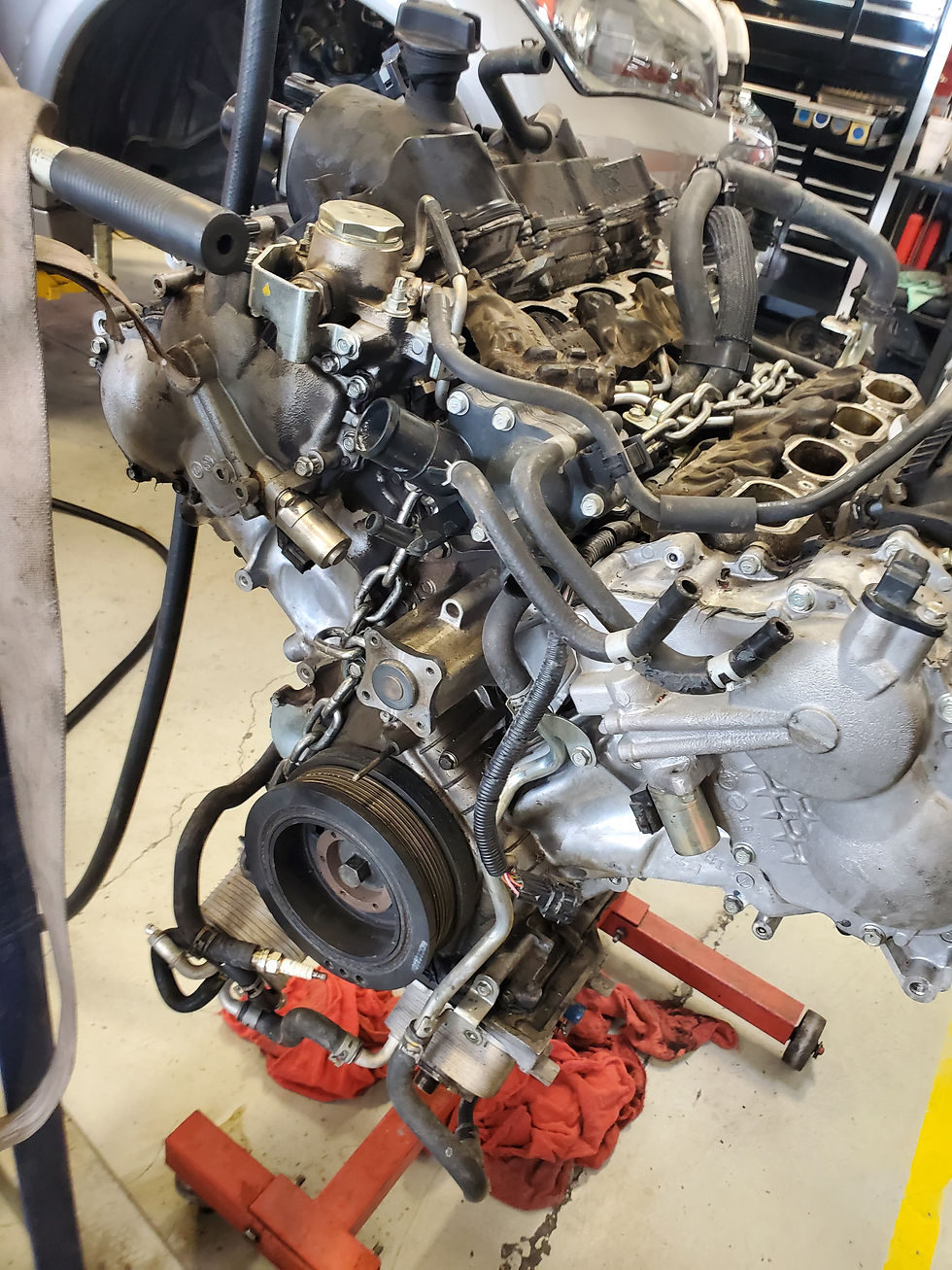The Hidden Cost of DIY Automotive Repairs
- Keith Ortolano
- Nov 8, 2024
- 4 min read

1. Specialized Tools Can Be Expensive
One of the biggest surprises DIYers face is the cost of specialized tools. While basic repairs might only require a simple set of wrenches and screwdrivers, many automotive repairs need specialty tools like a torque wrench, diagnostic scanner, or brake caliper tool. These tools can cost hundreds of dollars each, and investing in them for a single job isn’t cost-effective.
Professional shops already have these tools on hand, so they’re equipped to handle repairs efficiently. For many DIY repairs, the cost of tools alone can end up being more expensive than taking the car to a trusted mechanic.
2. Lack of Experience Can Lead to Costly Mistakes
Even with online guides, DIY car repairs require a good understanding of automotive systems. If you don’t have the right experience, it’s easy to make mistakes that can cause even more damage to your vehicle. A misaligned part, an improperly installed component, or an overlooked detail can lead to serious issues down the road.
For example, a poorly done brake job can reduce stopping power, compromising your safety. Or, an improperly replaced timing belt can lead to severe engine damage, requiring thousands of dollars in repairs.
Pro Tip: A small mistake during a DIY repair can have big consequences. Mechanics with certifications like ASE are trained to handle repairs correctly, ensuring that nothing gets overlooked.
3. Quality of Parts Matters
When shopping for parts online, it’s easy to assume that all components are of equal quality, but this is rarely the case. Many DIYers unknowingly purchase low-quality or incompatible parts that wear out quickly or even damage other systems.
At professional repair shops like Asian Imports Auto, we use high-quality parts from reputable suppliers. These parts are designed to last and often come with warranties, giving you peace of mind. Using cheap parts might save money upfront, but it often leads to more frequent repairs and replacements over time.
4. Time is Money
DIY car repairs can be incredibly time-consuming, especially if you’re unfamiliar with the process. What might take an experienced mechanic an hour to complete could take a DIYer half a day—or more. Time spent on repairs is time taken away from other important tasks, family, or relaxation.
Even if you’re willing to spend a weekend tackling a repair, it’s essential to consider whether the time investment is worth it. In many cases, paying a professional can save you time and stress, allowing you to get back on the road faster.
5. Safety Concerns
Certain car repairs require specialized knowledge and safety measures to ensure you don’t injure yourself or someone else. For example:
Suspension repairs involve high-tension springs that can cause serious injury if not handled correctly.
Fuel system repairs carry risks of fire or explosion if fuel lines aren’t properly sealed.
Brake repairs done incorrectly can lead to accidents if the brakes fail on the road.
Professional mechanics are trained to work safely, using the correct tools and procedures to minimize risks. Attempting these repairs at home without the right training and equipment can be dangerous.
6. The Warranty Factor
Most professional repair shops offer warranties on both parts and labor. At Asian Imports Auto, for example, we offer a 2-year, no-hassle warranty on parts and repairs, giving customers peace of mind that their vehicle is covered if an issue arises.
With DIY repairs, you won’t have that same protection. If something goes wrong after you’ve completed a repair, you’re responsible for any additional costs. For expensive or complex repairs, this lack of a warranty can be a significant drawback.
7. The Cost of Diagnostics
Modern vehicles are equipped with complex computer systems that often require diagnostics to pinpoint issues accurately. DIYers may attempt to diagnose a problem based on symptoms alone, but this approach can lead to misdiagnosis and unnecessary repairs. While you can purchase diagnostic tools, they’re typically limited in scope and may not provide the detailed information that professional-grade scanners offer.
Professional shops use advanced diagnostic tools to accurately identify issues, saving you from wasting money on repairs you don’t need. By relying on precise diagnostics, you can avoid replacing parts that aren’t the root cause of the problem.
8. Resale Value Implications
Keeping up with professional maintenance can enhance your car’s resale value. Prospective buyers look for vehicles with documented service histories, especially from reputable repair shops. DIY repairs may lack the paperwork and records that buyers expect, potentially decreasing the resale value of your vehicle.
If you plan on selling your car in the future, having a record of professional maintenance can increase buyer confidence and even improve the sale price.
The Bottom Line: DIY Repairs Aren’t Always the Cheapest Option
DIY car repairs might seem like a good way to save money, but the hidden costs can quickly add up. From the price of specialized tools to the risks of costly mistakes, there are many factors to consider before diving into a repair project. For many people, the peace of mind that comes from working with a certified mechanic far outweighs the potential savings of a DIY job.
At Asian Imports Auto, we pride ourselves on providing high-quality repairs, transparency, and top-notch customer service. With over 35 years of experience, our ASE Certified Master Technicians are here to make sure your vehicle receives the care it deserves. The next time you’re facing a repair, consider the true cost of DIY and the value of professional expertise.








Comments